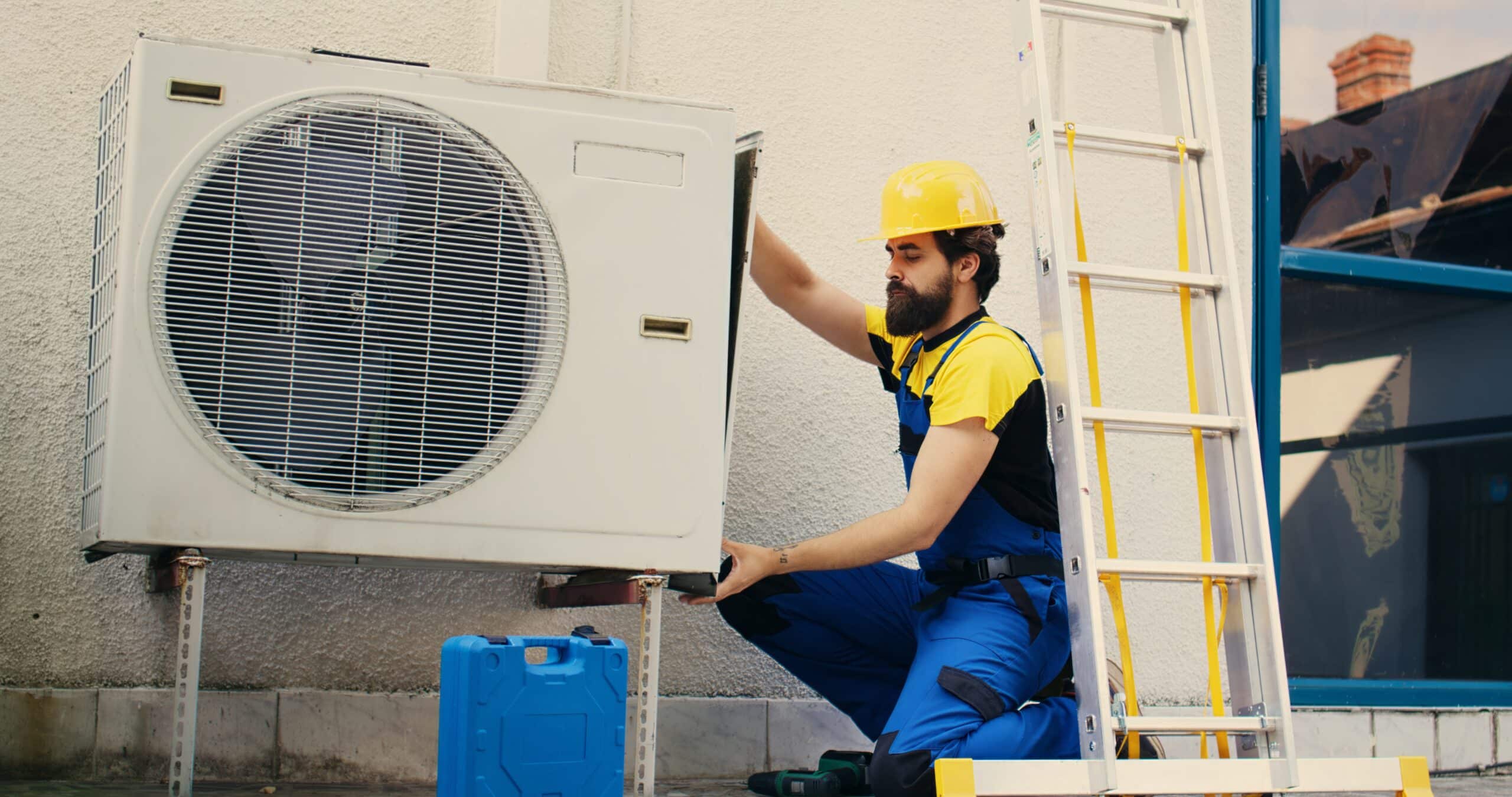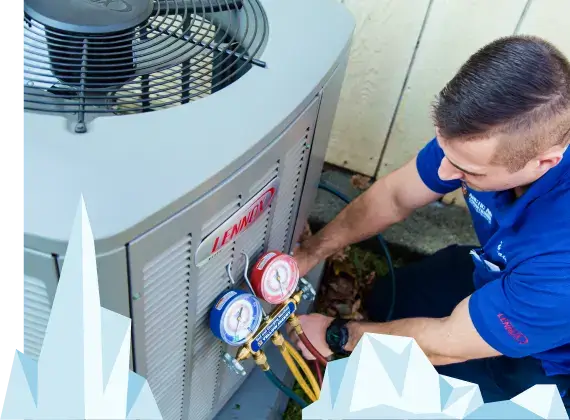Upgrade Your System Today with DMAKS HVAC Installation Services.
Upgrade Your System Today with DMAKS HVAC Installation Services.
Blog Article
How to Pick the Right Cooling And Heating System for Your Requirements
Choosing the suitable HVAC system is a vital decision that requires mindful consideration of various variables. Begin by reviewing your home's dimension, layout, and unique needs, as these aspects dictate the necessary capacity and setup of the system. In addition, establishing a spending plan that includes installation and long-term functional expenses is important. As you weigh your alternatives, comprehending power effectiveness ratings and the effects of your local environment will play a significant function in your choice. The myriad of system types offered can complicate this process, leading one to question which course eventually leads to optimum comfort and performance.
Assess Your Home Size
Analyzing your home dimension is an essential first step in picking the suitable A/c system. A Cooling and heating system that is also tiny will certainly have a hard time to preserve comfortable temperature levels, leading to boosted power usage and wear on the unit.
To accurately assess your home dimension, measure the square footage of each room, considering factors such as ceiling elevation and the design. Furthermore, think about the insulation quality and the variety of home windows, as these aspects impact thermal performance. Residences with open layout may require different system configurations compared to those with numerous separated rooms.
Using the Handbook J tons calculation approach can supply a much more precise price quote of your cooling and heating needs. This method accounts for different aspects, including local environment, solar gain, and occupancy patterns. By meticulously evaluating these facets, you can guarantee that your chosen a/c system is appropriately sized, bring about improved convenience, energy performance, and longevity of the tools.
Determine Your Budget Plan
Establishing your budget plan is a crucial step in the heating and cooling system selection procedure, as it sets the specifications for your options - DMAKS HVAC. A cooling and heating system is a significant financial investment, and understanding your economic limitations will certainly help limit choices that fit within your ways
Begin by analyzing not only the first purchase cost yet also setup prices, which can vary substantially depending on the complexity of the project. Moreover, take into consideration ongoing costs such as upkeep, repairs, and energy consumption. A system might show up affordable at first yet can bring about higher costs in time if it is much less effective.
It is suggested to allocate a contingency fund for unforeseen costs that might develop throughout installment or first system changes (DMAKS HVAC). In addition, explore funding options or rebates that may be readily available, as these can ease the problem of in advance expenses
Inevitably, having a clear budget plan allows you to involve with a/c specialists better, guaranteeing you get customized recommendations that aligns with your economic objectives and home requirements. By being persistent concerning your budget plan, you can make enlightened decisions that boost comfort without endangering financial security.
Evaluate Energy Effectiveness
Energy effectiveness plays a vital function in the total performance and cost-effectiveness of your a/c system. When selecting a system, it is essential to consider its energy performance ratings, as these figures straight impact your energy expenses and ecological footprint. Try to find systems with a high Seasonal Energy Effectiveness Proportion (SEER) for cooling down and a high Annual Gas Use Performance (AFUE) rating for heating. Greater rankings suggest higher performance, implying more convenience for much less energy usage.
In addition, consider the Energy Star accreditation, which symbolizes that the system fulfills stringent efficiency guidelines set by the Epa. Buying a Power Star-rated cooling and heating system can lead to significant savings in time, especially in areas with extreme temperature fluctuations.
Another element to examine is the system's size and capability. A large or undersized unit can lead to inefficiency and increased energy costs. DMAKS HVAC. Proper sizing, her comment is here frequently identified with a Manual J load estimation, makes certain that the system operates at optimum effectiveness


Consider Climate and Atmosphere
When choosing a cooling and heating system, it is crucial to consider the local climate and environmental conditions, as these elements substantially affect the system's efficiency and effectiveness. Various regions experience differing temperature level extremes, moisture degrees, and seasonal modifications, all of which effect heating and cooling needs.

Moreover, regional ecological factors, such as air top quality and potential irritants, should notify your choice. Systems equipped with advanced purification innovations can aid mitigate toxins and offer cleaner air. Furthermore, think about the power resources readily available in your location-- some a/c systems are a lot more effective when powered by all-natural gas or renewable resource resources.
Eventually, aligning your cooling and heating system choice with your neighborhood environment and ecological factors to consider will cause improved convenience, boosted efficiency, and lower energy expenses.
Explore System Kind and Functions
As house owners look for to maximize comfort and performance, discovering the numerous types of a/c systems and their unique features comes to be important. The key sorts of heating and cooling systems include central air conditioning, warmth pumps, ductless mini-split systems, and heating systems. Each system supplies distinct benefits tailored to various requirements and preferences.
Central air conditioning systems offer uniform air conditioning throughout a home, making them suitable for bigger rooms. Warm pumps act as both heating and cooling down services, utilizing power to transfer heat, which can cause lower power prices. Ductless mini-split systems are coming to be increasingly preferred as a result of their versatility and ease of installment, allowing homeowners to manage the temperature in specific areas without extensive ductwork.

Final Thought
Finally, picking the suitable HVAC system demands cautious consideration of various variables, including home size, budget restrictions, power performance, local environment, and available system types. A detailed analysis of these components guarantees optimal comfort and cost-effectiveness. By following a structured strategy, home owners can make enlightened choices that align with their specific demands and choices, ultimately resulting in enhanced interior air quality and power cost savings.
Report this page